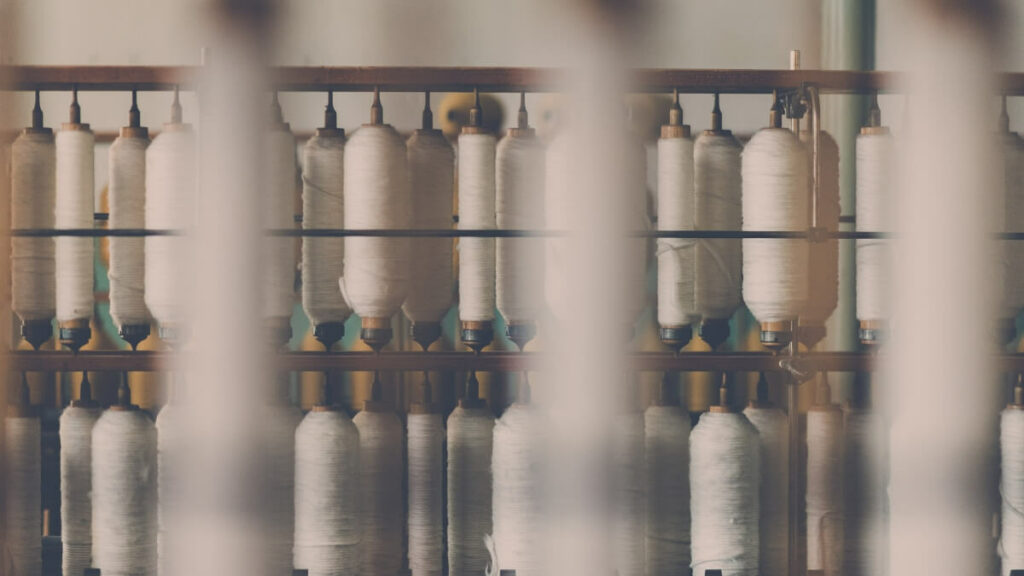At ALDI, we pride ourselves on operating with complete integrity. From taxation to our supply chain, we strive to bring transparency to our operations and welcome the introduction of the Modern Slavery Act to Australian businesses.
We are pleased to learn that the Australian Government has passed legislation to protect workers’ rights around the globe. The Modern Slavery Act requires Australian businesses with annual consolidated revenue of more than $100 million to publish annual statements on the steps they are taking to address modern slavery in their operations. The passing of this Bill is a huge step in the right direction to eliminating modern slavery in the supply chains of Australian businesses.
“There is no place for modern slavery in our business or our extended supply chains. ALDI welcomes the Modern Slavery Bill as it is set to play an important role in creating awareness of this issue, and more importantly, it will build the required accountability in the practices of Australian businesses,” said Daniel Baker, ALDI Australia’s Corporate Responsibility Director.
ALDI strives to continuously improve the working conditions of the employees in our supply chain. To do so, we seek to find the right partners on the ground in some of the highest risk area countries. We are pleased to announce our partnership with the Centre for Child Rights and Corporate Social Responsibility (CCR CSR), who has been working with businesses for almost 20 years to assess, remediate and research issues on child labour. We intend to work together with CCR CSR to continue to train our suppliers in both, child labour prevention, remediation and worst forms of child labour.
Stronger Together
ALDI welcomes a collaborative working partnership with the Stronger Together initiative in Australia. Stronger Together is a not-for-profit organisation that supports businesses of all sizes to tackle modern slavery in their operations and supply chains. This helps employers and labour providers in at-risk sectors to deter, detect and deal appropriately with cases of forced labour, labour trafficking and other labour exploitation.
We have always been very clear about the fact that exploitation, human rights abuses, forced labour and human trafficking will not be tolerated in our supply chains, either here in Australia or globally. Honouring that commitment requires considerable diligence, investment and resources.
In the course of our day-to-day operations we deal with a host of different suppliers. While the majority of ALDI’s suppliers are based in Australia, our supply chain is diverse and a percentage of our products are manufactured off shore. We acknowledge the risks associated with running a business in a globalised economy—in particular the risks associated with modern slavery—and have taken a number of steps to mitigate them.
Social Standards in Production
ALDI’s Social Standards in Production define our commitment to human rights and establish minimum standards that must be met by our suppliers. These are based on the provisions of United Nations conventions, including The UN Convention on the Rights of the Child and The International Labour Conventions, our standards mandate:
- No use of forced or bonded labour
- No use of child labour
- Payment of legal minimum wages
- Freedom from discrimination in the workplace
These standards are binding for all ALDI suppliers and we expect them to communicate theses to all levels of the supply chain.
Social Monitoring Program
The Social Monitoring Program is focused on improving working conditions at production facilities, particularly those in high risk countries or product categories. All suppliers in the program must be a member of a supply chain management platform. They are also required to submit to an independent ethical audit of their manufacturing facility and follow up on corrective actions based on continuous improvement.
If a breach against our Social Standards in Production is found we are committed to engaging experts and working closely with the supplier to remediate the situation. Based on the findings of each case, we are able to continuously improve our approach to monitoring and remediation. We prioritise transparency with our suppliers and more broadly in our supply chain, to realistically consider the situation and use our influence as a major Australian retailer to continuously improve the social standards in our supply chain.
Corporate Responsibility Units
In addition to independent audits, we also have our own teams of qualified staff based in Hong Kong and Bangladesh. These teams regularly visit production facilities manufacturing our goods to conduct ALDI’s Social Assessments. As part of working with us, suppliers must agree to regular site visits and assessments by our ethical auditors who conduct these on announced, semi- announced and unannounced basis.
Responsible sourcing
We are committed to sourcing 100% of our cocoa from sustainable sources by 2020. As such, we have increased the number of ALDI branded products that carry the Fairtrade and UTZ certifications. ALDI chocolate is a prime example of the steps we’re taking in this area. The global cocoa sector has long been associated with unfair terms of trade, child labour and poverty. Buying Fairtrade and UTZ-certified chocolate can help break this harmful cycle. 100% of the company’s flagship Moser Roth, Choceur and Dairy Fine brands of chocolate are certified as sustainable.
These are just some of the steps that ALDI has taken to combat modern slavery. Our work on this issue is ongoing, and we are constantly refining our policies and processes in order to prevent these abuses from happening.
Human Rights Policy Statement
Our Human Rights Policy Statement outlines our commitment to the United Nations Guiding Principles on Business and Human Rights. ALDI Australia’s CEO, Tom Daunt, and our Managing Directors are responsible for overseeing the implementation and compliance of our Human Rights Policy and our Corporate Buying Department works closely with our national and international Corporate Responsibility experts in coordinating measures to consider human rights as part of our buying processes, including ongoing monitoring and remediation.
The United Nations estimates that more than 40 million people around the world are modern-day slaves. The majority are trapped in forced labour, 25 million, while 15.4 million are held in forced marriages. Women and girls account for 70 per cent of those held in slavery.
Clearly, these statistics are unacceptable. They run counter to the internationally agreed Universal Declaration of Human Rights, and to ALDI’s values.
We anticipate the positive impact the Modern Slavery Bill will have globally on human rights issues. As a business, we embrace the opportunity to continue practicing, and working towards, taking a stance against modern slavery.





